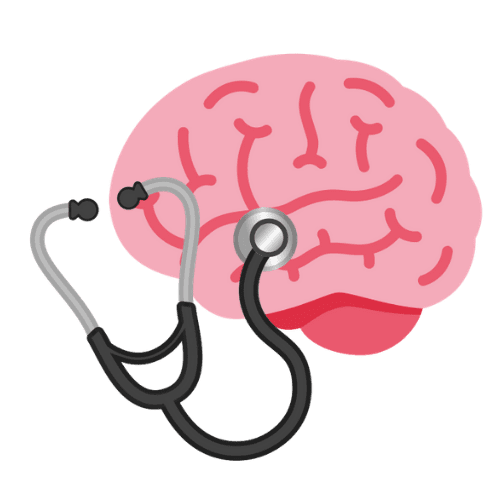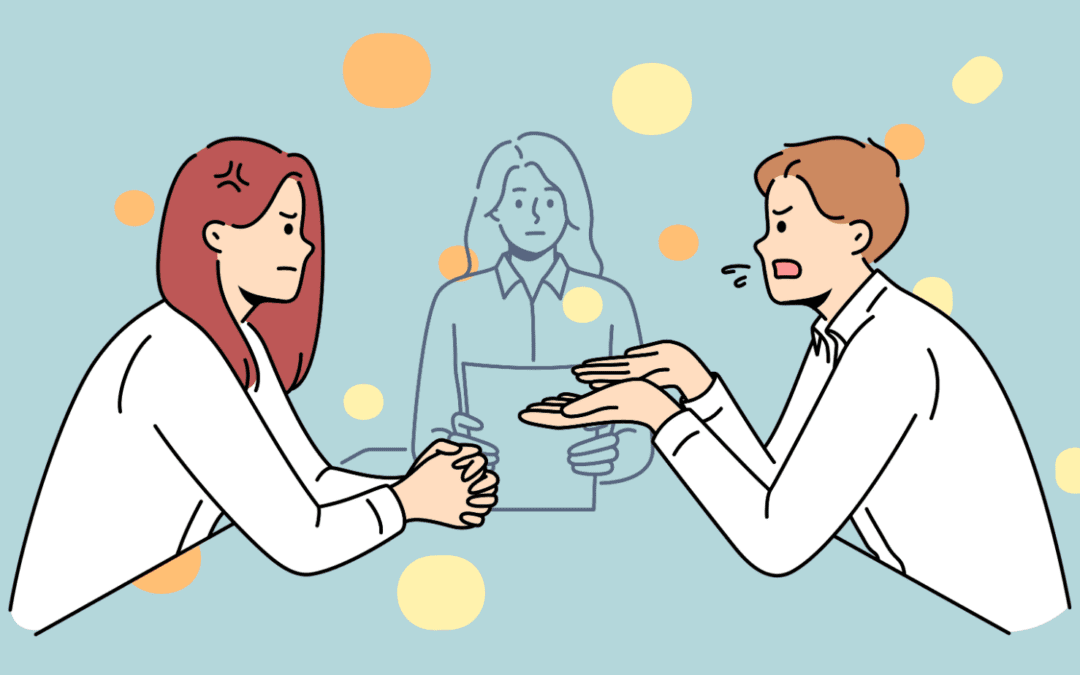Twitter is my favourite procrastination tool – especially when I’m glued to the latest #MedTwitter debate between doctors. A week ago, I saw this tweet by Matthew Simpson, an ADHD Law student just across the river from me in Dundee:
Matthew received this letter from a consultant psychiatrist in NHS Tayside. If I lived just a few miles north, across the Tay, I could have been seen by that psychiatrist too. My initial reaction was abject speechlessness, quickly succeeded by intense anger.
ADHD stigma affects doctors too.
To see a consultant psychiatrist, supposedly familiar with neurodevelopmental conditions, completely ridicule the idea of a successful adult having ADHD really shocked me. It was a callous letter. I couldn’t believe that a medical professional could make such negative assumptions about Matthew’s character without having ever met him.
Mental Health Awareness Day was last week. Nearly every post on social media, including those from doctors, advocated speaking out about mental health. Does that not extend to ADHD? Although not a mental illness, it can have massive effects on a person’s self-esteem and wellbeing. ADHD is often associated with other conditions such as depression and anxiety disorders too. It’s also primarily diagnosed and treated by doctors.
Does neurodiversity eliminate your chances of success?
The insinuation that an adult in the 3rd year of a law degree cannot have ADHD because they have succeeded in getting to that point is insulting. It carries no awareness of the reality lived by many ADHD students. Because our brain is inherently uncooperative, we have to push ourselves twice as hard for the same results. Even though I now have strategies to help me with my studies, I still feel guilty if I don’t work to the point of burnout. It’s what I’ve been used to for years. Four months down the line now from diagnosis, I’ve gone from a 3rd class average in my degree to a 2.1. That’s the difference that recognition of my ADHD and appropriate support made for me.
However, like Matthew, I had to pay a lot of money for private medical care to get that. Structurally, NHS psychiatry services are broken. For me, the NHS waiting list for an initial ADHD assessment was an average of two years. I’d have been in my 5th year of medical school before I even got a diagnosis.
What is wrong with how our doctors think of ADHD?
We expect individuals with possible cognitive dysfunction to effectively sell themselves as a viable referral to their GPs. These doctors often don’t have much notion of Attention Deficit Hyperactivity Disorder other than the hallmark characteristics of the name. The struggle of those seeking an ADHD diagnosis also reflects the familiar issue of being unable to access services for any mental health condition until you’re at risk of serious harm.
Doctors need to reassess their perceptions of ADHD, and challenge stigma and stereotypes. It doesn’t go away when you become an adult. It is also possible for it to remain unidentified until later on in life. This is especially the case for women. Likewise, you can still have ADHD and look like a “high achiever”. Consider what has gone on behind the scenes for us to get there.
I also believe many doctors don’t understand the ways in which ADHD holds us back. They have this image of hyperactive little boys, and try to project it onto the adult in front of them. “Just trying harder” won’t do anything for the fact that I have a shockingly poor working memory, get distracted by even the sound of the breeze, and have auditory processing issues that mean I struggle to understand verbal instructions longer than a single sentence. ADHD is not “all in my mind” – it’s a real dysfunction of dopaminergic neurons in my brain. Importantly, we all experience that dysfunction differently.
ADHD stigma is real, and it’s everywhere.
There is a palpable stigma around ADHD. A member of staff told me that they didn’t think extra time in exams for ADHD was fair, because I wouldn’t get it on the wards. Would they have said the same to a student with a physical disability? This person was a doctor – and as Matthew has shown, there’s plenty more out there that don’t understand how ADHD affects us.
When it comes to something wrong with our bodies, we often look to doctors and other healthcare professionals before anyone else. We take their word as the truth. The concept of reasonable functioning in one area being indicative of no cognitive impairment at all is pervasive amongst medics, and above all, it’s harmful. If I’d received Matthew’s letter myself, I would have felt ashamed of myself. I would never have pursued an ADHD diagnosis, and I would still not know what was holding me back. I wonder how many patients have felt put off by this Tayside psychiatrist, or the GP referring. How many are now doing worse as a result?
Doctors – keep your opinions professsional.
I’m studying to become a doctor one day – and I’ll be an attention-deficit one. From my own experiences, I have gained an appreciation for the value of the patient perspective. I hope my medical peers are learning this too. A diagnosis is a professional opinion, and so your own prejudice should not be a part of it. I also cannot imagine talking about a patient in the manner the psychiatrist did. It wasn’t just a rejection of the referral. It was a character assassination and completely inappropriate.
As doctors, we are all familiar with the phrase “do no harm” – but harm is exactly what’s happening when patients find themselves in waiting list limbo, or worse, completely dismissed by someone they trust to look after them.
Any medical professionals reading – here is a journal article about adult ADHD, and how it can differ from its description in DSM-5.
If you’re an adult, and think you may have ADHD, here is a good webpage describing lots of things you might experience, and what diagnosis and treatment may involve.
Interested in reading more dissections of current affairs and problems in the ADHD world? Check out our Opinion category here.


As a person with ADHD (diagnosed in my mid-30’s) and UK practising psychiatrist with over 20 years experience I have to say that although I am saddened to see the letter tweeted in this post, I am not at all surprised.
Medicine, like other professions, can be very slow to adopt new ways of thinking. Sometimes it can require the entire ‘old guard’ to retire in order to allow progress to occur. The attitudes expressed in the letter pictured were commonly held – even by experts in ADHD – 20 or 30 years ago, yet are now sorely out of date.
My own ‘success’ in my profession has been very hard won; I have suffered from periods of stress/burnout/depression numerous times over the years, and have a total time off-sick (from these conditions) that amounts to several years of my career.
Would an earlier diagnosis have helped? maybe, maybe not. But I am certain what would help much more (and this is a deliberate change to the present tense) is my senior colleagues actually bothering to read up on the modern understanding of ADHD and being supportive, rather than persistently expressing views similar to those in the letter above.
I have very recently been diagnosed with ADHD in my 40s and am a substantive Hospital Consultant. In addition to my medical qualifications, which include my primary medical degree, a membership of a medical royal college and a PGCert in medical education; I also have a bachelors, masters and PhD outside of medicine. All this was achieved prior to and without the knowledge of my diagnosis. Quite frankly the idea that one can’t be a high achiever and have ADHD is clearly wrong and the attitude of the locum consultant writing the comments seen here is appalling. Yes, I have managed to achieve a lot, but it has not all been plain sailing. I have had multiple problems with mental health, particularly with anxiety. My wife and children have had to deal with an emotional, angry and stressed person which may have been avoided if I had recognised my symptoms and sought help earlier.
I specialise in cancer care and early on in my training I was taught that we do not treat a cancer, we treat a person. That person deserves holistic care and it seems that, unfortunately, those making the kinds of comments seen above fall woefully short of recognising this. Just because someone does not fit into the nice little pigeonhole we have made for them, does not mean they don’t deserve help.
You can be a great doctor with ADHD and the more we support those of us in that category, the longer and better we will be able to serve our patients and colleagues and serve as an example to young people with ADHD that it doesn’t need to define their level of achievement.
are there particular challenges in your oncology practice bec of adhd and how do you deal with it?
Thank you so much for sharing this Jon, I really resonate with what you have said – we are much more than our ADHD, it doesn’t define us, but it is still certainly an influence which more professionals should acknowledge.